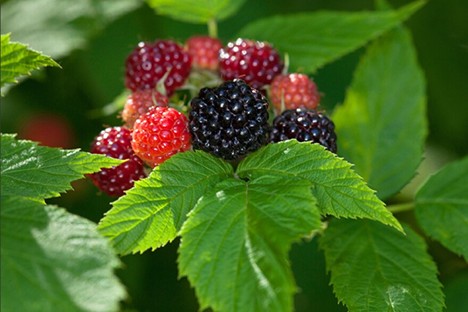
By Rachel Lewis
With summer in full swing, you-pick farms have been seeing customers picking their own fruits and vegetables across the state. From blueberries and strawberries to tomatoes and asparagus, many people have opted for gathering their produce themselves. For some, this food gathering goes beyond the farm. In recent years, many people have been turning to wild berry foraging. Instead of grocery stores, these foragers seek out fresh fruits, nuts and herbs from local hiking trails or even off the side of the road.

By Rachel Lewis
Michigan environmental officials found 1,4-dioxane, a toxic chemical, in six residential water wells in Scio Township during annual state testing. The dioxane, coming from the Gelman Plume, ranged between 0.33 to 0.86 parts per billion (ppb), well under the state Department of Environment, Great Lakes and Energy’s (EGLE) drinking water limit of 7.2 ppb. Although the state says the water is safe, some advocates for a more aggressive plume cleanup say the new detection suggests the plume is moving north. They say it could be dangerous if it reaches Barton Pond, Ann Arbor’s main water source.

By Rachel Lewis
With the goal of cutting food waste by 50% from 2005 levels by 2030, The Michigan Department of Environment, Great Lakes and Energy (EGLE) has been helping to fund NextCycle Michigan. This program gives grants and advice to small companies in the state looking to reduce food waste. One of these start-ups is Penny Pickup. With robot food delivery vehicles becoming more popular, the company Orange Sparkle Ball decided to launch Penny Pickup as a pickup service, instead of delivery. Its focus is to remove trash and unwanted items, primarily food waste.

By Rachel Lewis
The Great Lakes Fishery Commission will receive a $2.1 million grant from the Environmental Protection Agency to address the invasive sea lamprey in the Grand River in Grand Rapids, Michigan.
More Headlines




